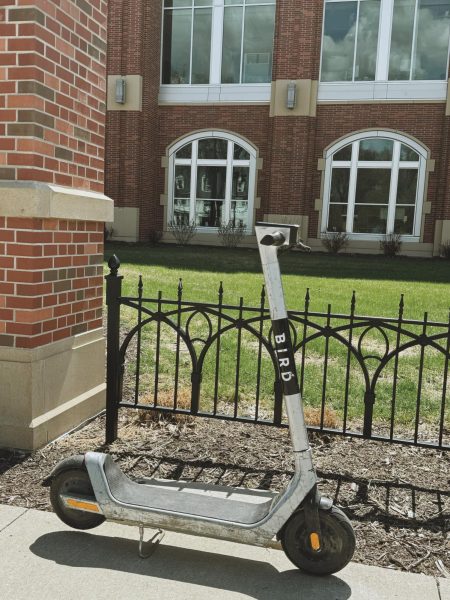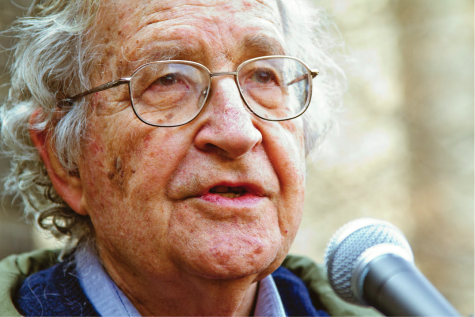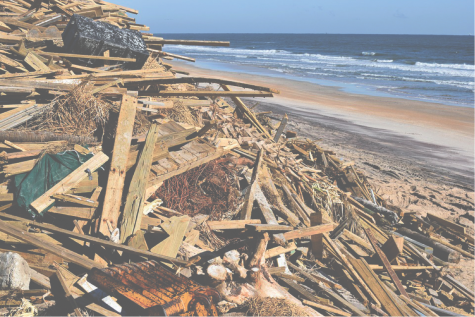New Netflix drama details infamous kingpin’s life
4 out of 5 stars
Netflix’s “Narcos” is more than just a story about Pablo Escobar, the wealthiest criminal of all time. Across 10 episodes the story of Colombia’s largest cocaine trafficker is told through the eyes of Steve Murphy, a bold young Drug Enforcement Agency operative assigned to capture Escobar.
“Narcos” tells its story from a trajectory we usually don’t see on TV. Most of our dramas fixate on characters’ psychological makeup and inner motivations and then go on to dramatize their personal salvation. “Narcos” focuses instead on how characters’ actions affect those around them. The scope is global, not personal.
Murphy narrates the show by introducing major characters and explaining the action. The first episode resembles a documentary as Murphy narrates the introductory plot. However the next nine episodes are full of action with much less narration.
The best part of Murphy’s narration is when he explains how politically corrupt South America used to be. For example, Chile used to be ruled by Augusto Pinochet, a tyrannical dictator who had Richard Nixon’s full support in the 70s.
At his peak, Pablo Escobar was making $60 million a day. He wiped out half of the Supreme Court justices of Colombia, demanded the government change laws and removed high-ranking officials he didn’t approve of. He even tried running for the president of Colombia.
The irony of the U.S.’s war on drugs becomes apparent in the latter half of the mini series when newly elected Colombian president Cesar Gaviria met with a U.S. ambassador to discuss American military involvement in Colombia. The ambassador commented on Gaviria’s country, stating it was spiraling out of control. Gaviria responds with pity saying, “According to the latest study, 660 tons of cocaine was consumed in the U.S. last year. Perhaps if your resources were focused at home, we’d all be better off.”
“Narcos” is not for anyone with a weak stomach. The violence is raw and savage, but there are moments of passion and comedy as well. Reading the subtitles is necessary unless you have taken many years of spanish and know Colombian slang. My Spanish comprehension is better than most non-native speakers, yet I was confused for the first half of the show.
Escobar says he wants to run for “gobernador” which translates into english as governor. What I didn’t know was that “gobernador” and “presidente” (president) basically meant the same thing in 70s Colombia. Now it makes sense why the “gobernador” had a plethora of armed guards.
If you love mob movies, you’re in for a special treat. “Narcos” does a great job of mixing in real footage and pictures to the production. The show is historically accurate with only a little creative licensing.
Escobar was able to bring a nation of 33 million people to kneel before him. In “Narcos” it is no different. I was on my knees begging for more by the end of the show. The only major flaw is pacing. There are times where “Narcos” slows down to one day in a single episode, while other episodes encompass several years.
I think the show would’ve benefitted from five more episodes. It is for that reason alone that “Narcos” does not get a five star review. It earns four out of five stars, or 80 percent. That’s equal to the percentage of all the cocaine being smuggled into the U.S. by Escobar at the height of his operation.
Nick Sallen is the opinion editor for The Dakota Student. He can be reached at [email protected]















